"As soon as the land of any country has all become private property, the landlords, like all other men, love to reap wherethey never sowed, and demand a rent even for its natural produce.The wood of the forest, the grass of the field, and all thenatural fruits of the earth `which, when land was in common, cost the labourer only the trouble of gathering them, come,even to him, to have an additional price fixed upon them.He must then pay for the licence to gather them; and must give upto the landlord a portion of what his labour either collects or produces.This portion, or, what comes to the same thing, theprice of this portion, constitutes the rent of land, and in the price of the greater part of the commodities makes a thirdcomponent part."Thus Wages, Profits, Rent, are the three component parts of Price.
At first it might appear as if there were a fourth element of Price; namely, Materials.Thus the table, besides the wages of thejourneyman and the profit of the master cabinet-maker, cost also the price of the wood.But then, of what does the price ofthe wood consist? of the Rent of the Land on which it grows; the Profit of the landlord for leaving it to grow; and theWages of the woodman who cut it down.And thus Price is reduced to Wages, Profits and Rent.
Wages,' as we have said, is the reward of labour.Profits is the reward of abstinence:of the abstinence of the mastercabinet-maker, who employed his money to pay a journeyman carpenter, instead of spending it in eating, drinking, clothes,&c.Rent is a monopoly, but a necessary and inevitable monopoly, for land must be appropriated; and always has beenappropriated, as we have said.
Smith gives an example to illustrate the manner in which the three elements of price show themselves (p.20):
"In the price of corn, for example, one part pays the rent of the landlord, anothor pays the wages or maintenance of thelabourers and labouring cattle employed in producing it, and the third pays the profit of the farmer.These three parts seemeither immediately or ultimately to make up the whole price of corn.A fourth part, it may perhaps be thought, is necessaryfor replacing the stock of the farmer, or for compensating the wear and tear of his labouring cattle, and other instruments ofhusbandry.But it must be considered that the price of any instrument of husbandry, such as a labouring horse, is itself madeup of the same three parts; the rent of the land upon which he is reared, the labour of tending and rearing him, and theprofits of the farmer who advances both the rent of this land and the wages of this labour.Though the price of the corn,therefore, may pay the price as well as the maintenance of the horse, the whole price still resolves itself either immediately orultimately into the same three parts of rent, of labour, and profit.
"In the price of flour or meal, we must add to the price of the corn the profits of the miller and the wages of his servants; inthe price of bread, the profits of the baker and the wages of his servants; in the price of both, the labour of transporting thecorn from the house of the farmer to that of the miller, and from that of the miller to that of the baker, together with theprofits of those who advance the wages of that labour.
"The price of flax resolves itself into the same three parts as that of corn.In the price of linen we must add to this price thewages of the flax-dresser, of the spinner, of the weaver, of the bleacher, &c., together with the profits of their respectiveemployers.
"As any particular commodity comes to be more manufactured, that part of the price which resolves itself into wages andprofit, comes to be greater in proportion to that which resolves itself into rest.In the progress of the manufacture, not onlythe number of profits increase, but every subsequent profit is greater than the foregoing; because the capital which from it isderived must always be greater.The capital which employs the weaver, for example, must be greater than that whichemploys the spinners, because it not only replaces that capital with its profits, but pays, besides, the wages of the weavers;and the profits must always bear some proportion to the capital."There are however exceptions to the proposition that these three elements of price always exist.
Exceptions to the above.(Smith, p.23.)"Even in the.most improved societies, there are always a few commodities of which the price resolves itself into two partsonly, the wages of labour, and the profits of stock; and a still smaller number, in which it consists altogether in the wages oflabour.In the price of sea-fish, for example, one part pays the labour of the fishermen, and the other the profits of the capitalemployed in the fishery.Rent very seldom makes any part of it, though it does sometimes, as I shall show hereafter.It isotherwise, at least through the greater part of Europe, in river fisheries.A salmon-fishery pays a rent; and rent, though itcannot well be called the rent of land, makes a part of the price of a salmon as well as wages and profit.In some parts ofScotland a few poor people make a trade of gathering, along the seashore, those little variegated stones commonly knownby the name of Scotch Pebbles.The price which is paid to them by the stone-cutter is altogether the wages of their labour;neither rent not profit make any part of it."Again, there are cases in which the three elements, or two of them, are liable to be confounded.















